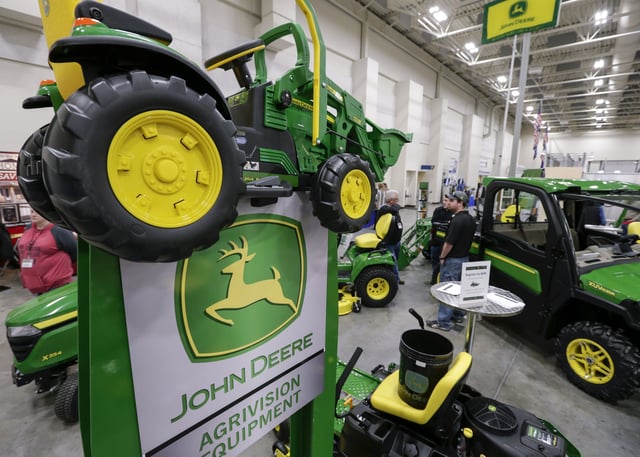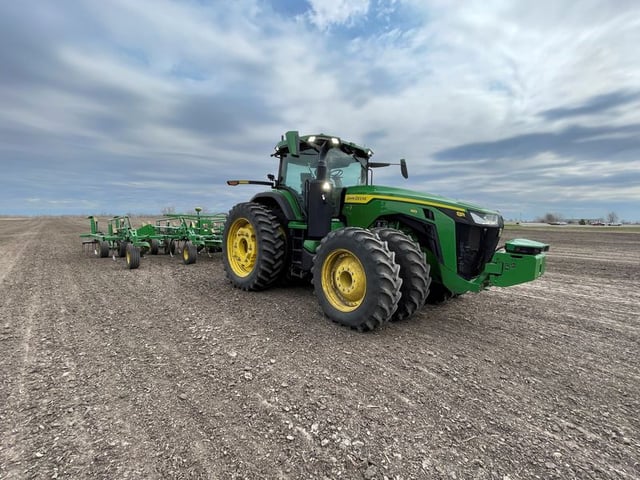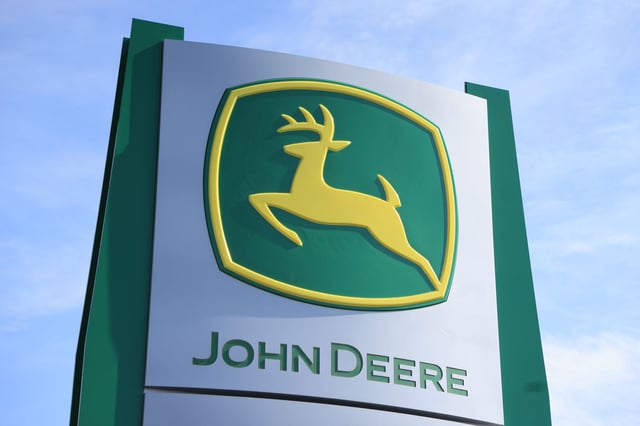Overview
- Deere cuts its full-year net income forecast to $7 billion, down from previous estimates of up to $7.75 billion.
- The company reported better-than-expected fiscal Q2 earnings, with EPS of $8.53 and revenue of $15.24 billion.
- Sales in Deere's Production & Precision Agriculture division fell 16% year-over-year, while Small Agriculture & Turf sales dropped 23%.
- The U.S. Department of Agriculture projects a 25.5% decline in net farm income for 2024, impacting farmers' purchasing power.
- Deere's shares fell over 3% as the market reacted to the revised outlook and declining equipment sales.


